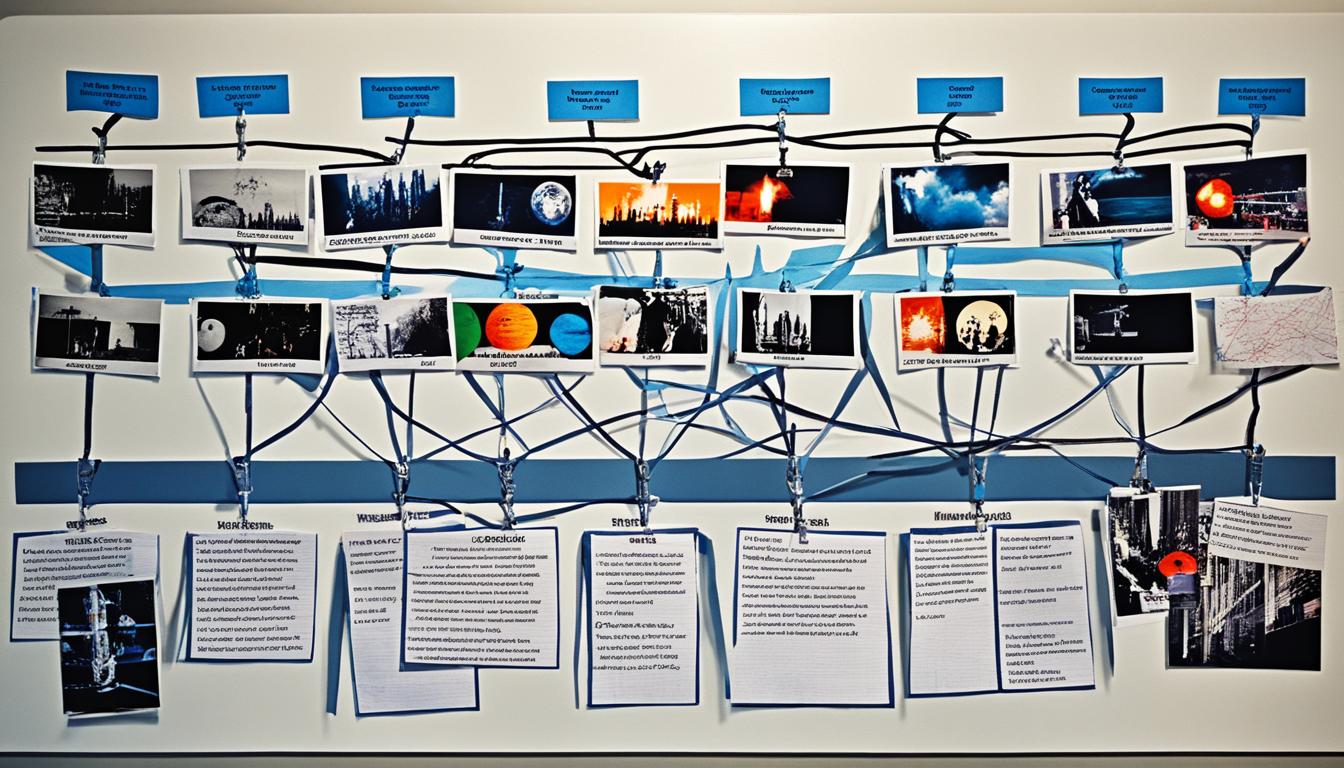To shut down a narcissist without starting a fight, calmly use phrases like “I hear you,” or “Let’s focus on facts,” to validate emotions without giving in. Redirect conversations with neutral cues like, “Let’s return to the main point,” or set clear boundaries with “I won’t discuss this anymore.” Use the gray-rock approach by staying unresponsive and ending the talk politely. Mastering these phrases helps you stay in control—discover more strategies to handle these situations effectively.
Key Takeaways
- “I hear you, but I need to focus on my own perspective now.”
- “Let’s return to the original topic and avoid personal attacks.”
- “I won’t engage in disrespectful conversations; I’m ending this discussion.”
- “Your frustration is clear, but I choose not to participate in this dynamic.”
- “I handle challenges independently and won’t be drawn into unnecessary conflicts.”
Setting Firm Personal Boundaries

Establishing firm personal boundaries is essential when dealing with a narcissist. You need to clearly define what behaviors are unacceptable, such as name-calling or dismissive comments. Write down your limits and develop a plan to enforce them, including specific consequences for violations. It’s helpful to coordinate with trusted allies who can support you emotionally or practically. Keep detailed records of any boundary breaches to recognize patterns and inform your future actions. Prioritize your self-protection instead of trying to change the narcissist’s behavior. Remember, boundaries are about safeguarding your well-being, not about negotiating with someone who disregards your needs. Be consistent and firm, and don’t hesitate to remove yourself when boundaries are repeatedly ignored. Recognizing narcissistic traits can help you anticipate their reactions and stay resilient in enforcing your boundaries. Understanding the importance of home organization can also empower you to create a safe and structured environment that supports your boundary-setting efforts. Additionally, being aware of the power dynamics involved can help you maintain control over interactions and reduce manipulation. Incorporating boundary enforcement strategies can further strengthen your ability to maintain these limits effectively.
Validating Emotions Without Concession

Validating a narcissist’s emotions without conceding to their demands requires careful navigation. You want to acknowledge feelings without reinforcing manipulation or entitlement. Use neutral phrases like “Your frustration is clear,” rather than validating their subjective experience. Remember, emotional validation can be exploited to escalate demands if you’re not cautious. Avoid rewarding self-centered narratives that boost their social status or justify harmful behavior. Focus on observable actions and facts, such as “This conversation has become heated,” to depersonalize conflicts. Set clear boundaries and responses:
| Do’s | Don’ts |
|---|---|
| Acknowledge neutrally | Endorse their perspective |
| Focus on behaviors | Validate emotional exaggerations |
| Use factual statements | Reinforce entitlement |
| Keep responses guarded | Show emotional reciprocity |
| Maintain objectivity | Allow emotional escalation |
Remaining aware of their tendency to manipulate emotional responses and exploiting validation, as well as their desire for validation and control, can help you stay centered and prevent escalation. Recognizing that some narcissists may exploit their need for validation to manipulate others is crucial in managing interactions effectively.
Shifting Focus and Clarifying Needs

When conversations become dominated by a narcissist’s self-focused tangents, redirecting the dialogue is essential to regain control and stay on track. Use neutral phrases like, “Let’s return to [specific topic],” to interrupt their monologue and refocus. Acknowledge their passion without engaging emotionally, saying, “I hear you’re passionate, but let’s stick to our main goal.” Implement clear discourse shifts such as, “Now that we’ve discussed X, let’s move on to Y,” to create structure. Set practical limits with time-bound statements like, “Given our time, I need to focus on [action].” Recognize that boundary-setting is crucial when dealing with narcissists to protect your emotional well-being. Use these techniques to shift attention away from their self-centered narratives, clarify your needs, and maintain a balanced conversation without fuel for their ego.
Ending Unproductive Interactions Gracefully

Ending unproductive interactions with a narcissist requires a deliberate and composed approach. Set clear boundaries upfront with statements like, “I won’t engage in disrespectful discussions,” or “Let’s stay focused on X.” Use conversation redirects such as, “Let’s circle back to the original topic,” to regain control. When provoked, employ the gray-rock method: remain unresponsive and say, “I see you’re upset. Let’s discuss this calmly.” If needed, clearly state, “I’m ending this conversation here,” to signal the end. Enlist third parties or document your interactions to add accountability. Leverage assertive communication by expressing your feelings with, “I feel disrespected when interrupted,” and reinforce limits with factual rebuttals. When interactions turn personal or unproductive, prioritize silence or disengagement to protect your emotional well-being. Recognizing when a situation is escalating to danger and having a plan to leave safely is essential in maintaining boundaries. Additionally, understanding the importance of boundary-setting can help you stay firm and protect your mental health during challenging exchanges. Developing an awareness of diverse strategies like the self-watering or waterless planters can serve as metaphors for maintaining emotional resilience—adapting your approach to preserve your well-being under different circumstances.
Expressing Self-Sufficiency With Confidence

To confidently express your self-sufficiency, focus on demonstrating your competence and independence without seeking approval or validation from others. Highlight your achievements quietly, showing your success without inviting judgment. Assert your problem-solving skills with statements like, “I handle challenges through effective strategies—no help needed.” When faced with unsolicited advice, respond calmly with, “I navigate situations confidently using my experience,” and consider emphasizing your understanding of sound healing science to reinforce your resilience. Neutralize attempts to compete by saying, “I focus on results, not comparisons.” If validation-seeking arises, remind them, “I find fulfillment through my internal standards.” Establish your decision-making authority by stating, “I prioritize choices aligned with my goals,” and dismiss irrelevant feedback with, “Your opinion doesn’t influence my approach.” Maintain your independence with clear, assertive responses that reinforce your self-sufficiency. Self-confidence is best demonstrated through consistent, quiet actions rather than loud assertions. Additionally, understanding the importance of mind-body connection helps reinforce your ability to stay grounded and resilient in any situation.
Frequently Asked Questions
How Can I Respond Without Escalating When a Narcissist Insults Me?
When a narcissist insults you, you need to stay calm and avoid feeding their ego. Use neutral responses like “Noted” or “I see” to prevent escalation. Redirect the conversation with questions like “How can we resolve this?” or set clear boundaries such as “I’m not here to debate this.” Keep emotional distance and prioritize your well-being, ensuring the interaction doesn’t become hostile or unmanageable.
What Phrases Effectively Assert Boundaries Without Provoking Anger?
You want to set boundaries without sparking anger, and the key lies in balance. Use calm, firm statements like “I won’t tolerate disrespect” or “This is non-negotiable for me.” Juxtapose your calm tone with clear limits, showing confidence without aggression. Repeating your boundaries, such as “My boundaries are clear,” reinforces your stance. This approach asserts your needs while minimizing conflict, keeping interactions respectful and focused on your well-being.
How Do I Acknowledge Feelings Without Appearing Agreeable to Manipulation?
When you want to acknowledge feelings without seeming agreeable to manipulation, focus on neutral responses. Say things like, “I hear you’re upset,” to recognize their emotions without endorsing their narrative. Avoid agreeing or confirming their version of events. Instead, redirect to observable facts or your feelings, such as, “This feels complicated,” or “I need clarity.” This approach validates their emotions while keeping control and preventing manipulation without starting a fight.
What Are Subtle Ways to Redirect a Narcissist’S Focus Away From Conflict?
Did you know that 60% of conflicts escalate because of misfocused attention? When dealing with a narcissist, subtle redirection works best. You can acknowledge their point briefly, then steer the conversation by asking a focused question or shifting to a neutral topic. Use calm, neutral responses like “That’s interesting,” and then pivot. This keeps the interaction controlled and prevents escalation without direct confrontation, helping you maintain boundaries effortlessly.
How Can I Confidently End a Conversation That’S Becoming Toxic?
When a conversation turns toxic, you can confidently end it by setting clear boundaries. Use direct statements like, “I need to pause this discussion,” or “I’m stepping away now.” Stay firm and calm, and don’t hesitate to walk away if needed. Prioritize your well-being by saying, “This isn’t healthy for me,” and remove yourself from the situation. Your confidence grows when you respect your limits and protect your peace.
Conclusion
By mastering these five phrases, you can confidently set boundaries and protect your peace without fueling conflict. Remember, studies show that over 70% of people experience increased stress when dealing with narcissists, so staying composed is key. With practice, you’ll feel more empowered to handle difficult interactions gracefully. Keep these phrases handy—they’ll help you maintain control and preserve your well-being, even when it feels like chaos is just around the corner.










